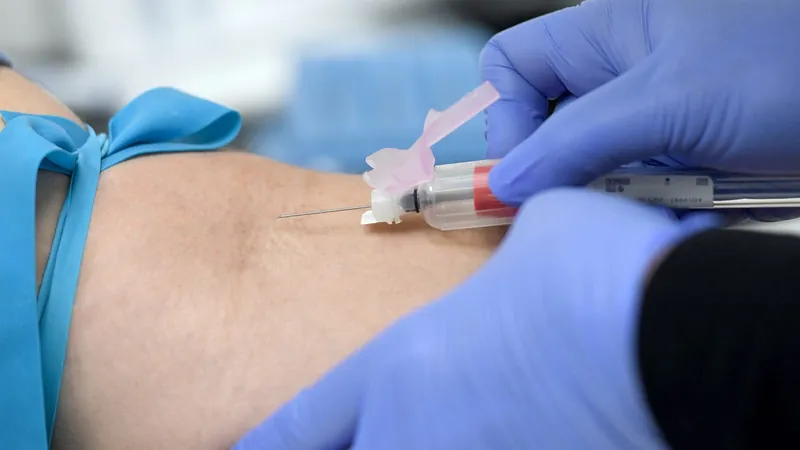
Syphilis Cases Soar in Northeast Ohio: What You Need to Know Now!
2024-12-11
Author: Ying
CANTON – Stark County and much of Northeast Ohio are grappling with a concerning rise in syphilis cases.
This situation experts attribute largely to the increase in unprotected sexual encounters facilitated by online connections.
According to Frank Catrone, supervisor of disease intervention specialists for the Canton Health Department, the outbreak has reached alarming levels.
"It’s pretty bad," Catrone stated. "In the 18 years I’ve been here, we’ve seen a drastic rise. Back in 2019, there were around 16 cases reported in Canton, but this year, as of the end of October, we’ve confirmed a staggering 77 cases." Stark County is feeling the impact too, escalating from 34 cases in 2019 to 137 in 2024.
The eight-county area comprising Stark, Wayne, Tuscarawas, Carroll, Holmes, Coshocton, Harrison, and Jefferson counties has witnessed an increase as well.
This increase has jumped from 46 cases in 2019 to 191 this year.
One alarming trend involves congenital syphilis.
This occurs when expectant mothers transmit the infection to their babies. The Canton district recorded two cases last year, which has increased to three this year.
The CDC reported nearly 4,000 babies born with syphilis last year, labeling it an “unacceptable American crisis.”
"This rise correlates with an increase in unprotected sexual encounters with multiple partners," Catrone explained.
His team has heard similar accounts from individuals during interviews.
The demographics affected span all ages, racial backgrounds, and economic statuses.
This showcases that syphilis does not discriminate. Contact with sores during the acute phase is the primary transmission method, and symptoms include painless ulcers, rashes, and hair loss.
If left untreated, the disease can lead to severe complications.
These complications include paralysis, liver issues, and irreversible damage to mental health and major organs.
Historical accounts reveal that notorious mobster Al Capone suffered from syphilis, resulting in permanent brain damage.
Fortunately, syphilis can be effectively treated with penicillin injections.
Catrone assures that there are no known resistant strains at this moment.
He encourages anyone suspecting they may have a sexually transmitted infection (STI) to reach out to the Canton Health Department for testing, which involves a simple blood draw.
In response to the outbreak, the health department has partnered with marketing firm Innis Maggiore.
They are launching an educational campaign, raising awareness about syphilis and STIs in general.
Notably, unlike HIV, Ohio law does not require individuals with syphilis to inform their sexual partners about their infection.
With these rising numbers, NOW is the time for proactive testing and education.
If you suspect you may be at risk, don’t hesitate to seek help. Your health could depend on it!


 Brasil (PT)
Brasil (PT)
 Canada (EN)
Canada (EN)
 Chile (ES)
Chile (ES)
 España (ES)
España (ES)
 France (FR)
France (FR)
 Hong Kong (EN)
Hong Kong (EN)
 Italia (IT)
Italia (IT)
 日本 (JA)
日本 (JA)
 Magyarország (HU)
Magyarország (HU)
 Norge (NO)
Norge (NO)
 Polska (PL)
Polska (PL)
 Schweiz (DE)
Schweiz (DE)
 Singapore (EN)
Singapore (EN)
 Sverige (SV)
Sverige (SV)
 Suomi (FI)
Suomi (FI)
 Türkiye (TR)
Türkiye (TR)